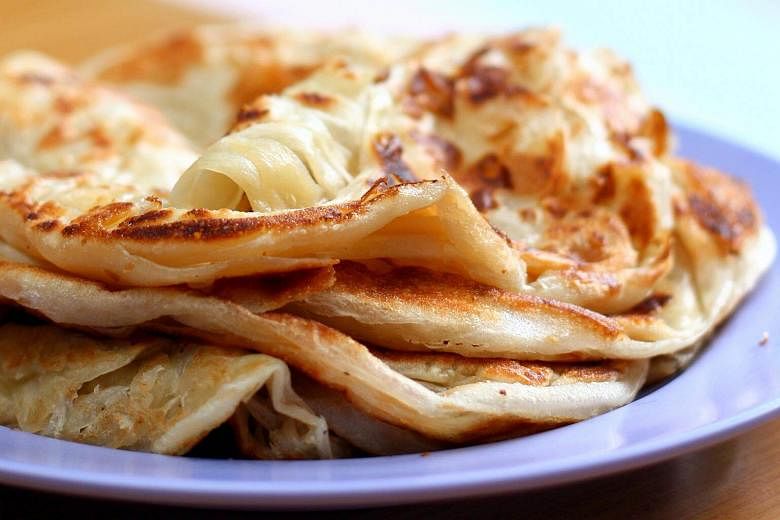When an athlete wins a medal at the SEA Games and returns home this is what they might do. Put off the alarm. Hide the clock. Wake up for once after the sun shows up. Become "a normal person" which is how shooter Jasmine Ser, who has a silver and gold, describes it. Maybe she'll go to a bookshop. Maybe she won't say "no" to her friend's baby shower like she had to once because practice was calling. Maybe she won't even look at her rifle.
When an athlete wins a medal they plan menus. Entire lists of unwholesome cuisine. Sunday night was bak chor mee for runner Dipna Lim-Prasad. Tonight may be prata. Tomorrow claypot laksa. Please understand, after months of the ascetic life, of weight watching and fat burning, of sighing at food she can't eat and convincing herself that performance requires suffering and winning two silvers and breaking a 43-year-old record she's earned her butter chicken. And a garlic naan.
When athletes win a medal the feeling is so exquisitely personal that they can't entirely define it, not that day, not to the waiting microphones, for its meaning is beyond logical sentences and its emotion hasn't yet filtered through their system. Some slap the water in delirium and others lie crumpled in a weeping mess.
"It's more than happy," says Ser. "I don't know how to say it." She had a tough shooting schedule, others battle injury and some simply grapple with hiccuping form. Winning then is proof of persistence, it's a reward for sweat, it's empowering and it's inspiring. Ser, who is a contained, inward-looking competitor, even allows herself a smile. For once it's just fine to lose composure.
When athletes win a medal they don't always need to see it because they've won it, earned it, fought for it, and anyway the medal is for the moment but satisfaction lies in negotiating a far longer journey. It's why when high jumper Michelle Sng eventually received her engraved gold medal on Sunday - the one she got on Friday did not have her event inscribed on it - she didn't even open the case till a fellow athlete wanted a photo with it. She didn't need to see it: for six years she'd struggled and she knew every ounce of its worth.
Ser's medals as of yesterday were still in her bag and and soon enough they'll make it into a showcase, while others might take their ribboned decorations to a parent's house or show them to friends, who just want to hold them and admire the weight of achievement. Lim-Prasad is planning to take hers to the Singapore Sports Institute so that people who work for athletes in offices, even those who book their tickets, can understand that they, too, made a contribution to these medals.
When athletes win a medal they're curious about how they won it, how calm did they look, how smoothly did they move, how fine was their technique, how precisely did they adhere to a plan? Lim-Prasad's first of many deconstructions took place immediately after her 400m hurdles, asking her coach about her split timings, did she hit her targets, in which sections did she go faster?
Ser was hoping to watch film of her 50m rifle three positions final last night while Amanda Lim, the five-time 50m freestyle champion who is built of fine fast-twitch fibre had already examined a replay of her swim. Not the version we see on television, but the video taken by a team official. "There will always be something I can improve on," she said and has already spotted "stuff I need to work on".
When athletes win a medal they slow down their heartbeats, put a brake on their lives, buy a ticket to the Maldives like Lim and do what she hasn't for months: Stay still. "Not do anything" is her temporary mantra and it's understandable for to win a medal is to feel exhilarated and yet exhausted for adrenalin dries and tension leaves the bones and relief calms the system and tiredness arrives like a wave.
And yet when athletes win a medal they eventually feel an itch. After a week or three on holiday there's a hankering, a hunger, an awkwardness at continued inactivity, even a guilt at an extended break. Ser confesses that after a while she "misses the challenge" and wants to see how fast she can refind form. Lim-Prasad laughs and insists her body is so used to being pushed that if she doesn't move for too long her body hurts.
One day they'll stop forever and pack away their plasters and painkillers but for now they're prisoners of routine, hostage to their competitiveness, and sport will pull them back and reel them in and convince them that it's time to set the alarm again for 4.45am.
So they'll sigh and give up the butter chicken and feel, as Lim says, "the urge to go and train" and return to the practice pool and the jumping pit, some days accompanied by no one else and nothing else except a blue sky and a big dream. You see, when athletes win a medal, eventually they just want another one.


